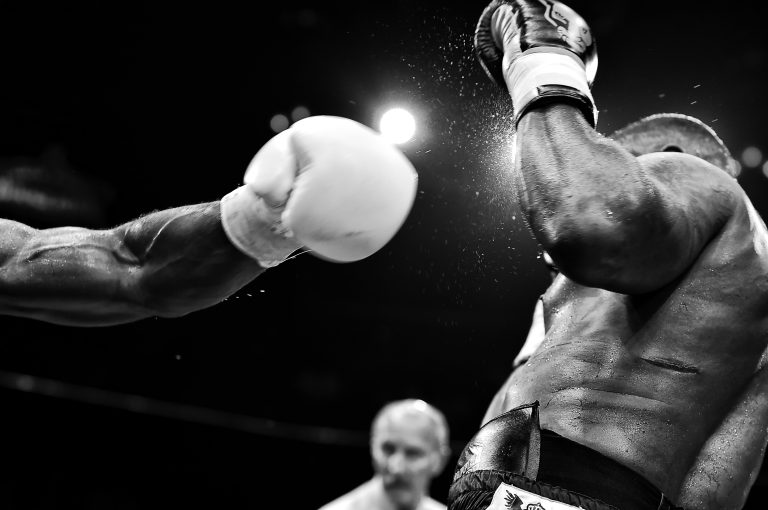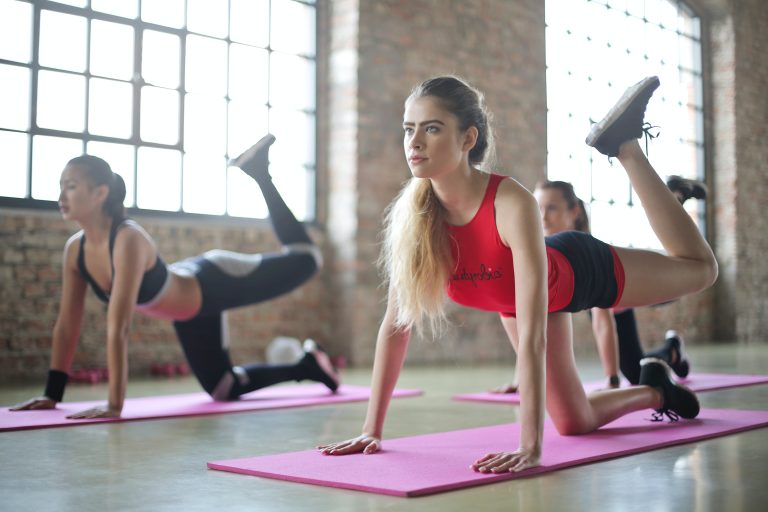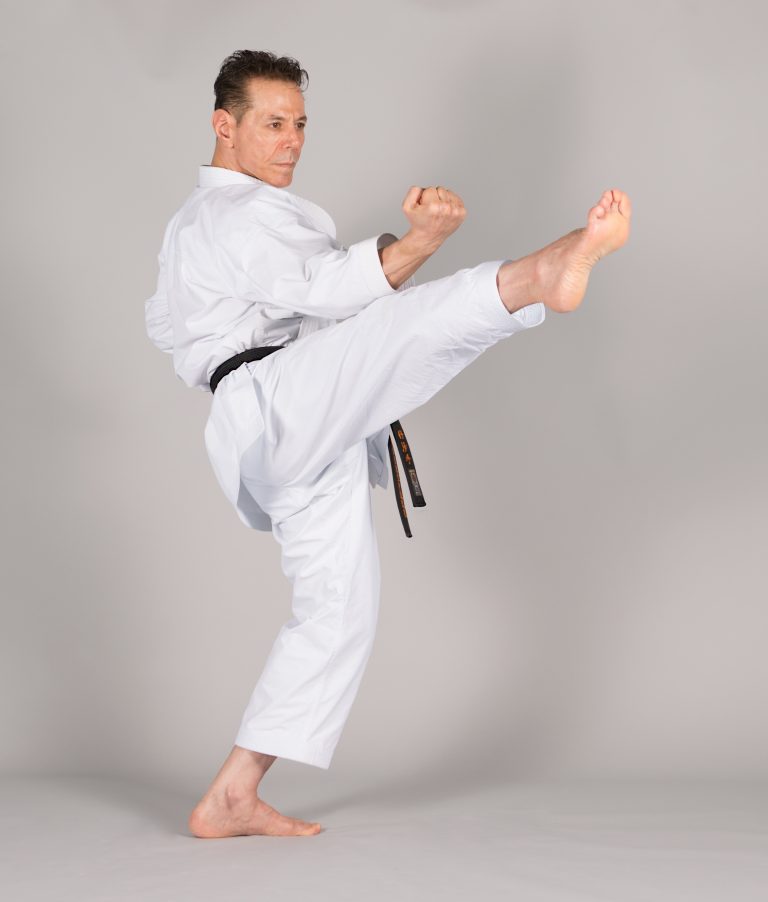What are the Benefits of Practicing Karate for Adults?
Karate has been practiced for centuries, more as a martial art form, than as a physical approach to keep fit. But in recent years, its popularity has grown, with an increasing number of adults, who look to gain the many benefits of karate.
In this blog post, we will explore the extensive range of benefits that karate can bring to an adult’s life and why it is an excellent at-home activity to stay fit and healthy.
What is Karate?
Karate is a Japanese martial art form, which focuses on fighting techniques with the primary purpose of self-defence. It’s origins come from the island of Okinawa, where it was specifically developed as a form of combative practice. In the twentieth century, however, it found more mainstream appreciation, with many people around the world taking up the art.
As part of karate, practitioners will usually practice a set of movements called Kumite. This is where two opponents perform a series of strikes and blocks either armed or unarmed. However, the practice of karate has since evolved to include a variety of techniques and styles. As well as punches, kicks, and other martial techniques, practitioners may also focus on yoga-like stretches and movements, as well as various forms of meditation.
This makes it not just a form of physical exercise, but also mental relaxation and spiritual connection.
What are the Benefits of Practicing Karate for Adults?
With the practice of karate comes a plethora of physical and mental benefits. These include:
Physical Benefits:
- Improved flexibility – Karate requires numerous different physical movements which can be adapted to suit most people’s physical abilities.
- Improved strength – Karate requires specific body control and strength, meaning that practitioners will become stronger over time.
- Improved cardiovascular health – From the combination of aerobic and anaerobic exercise that karate offers, practitioners can become more physically fit, reducing their risk for cardiovascular diseases.
- Improved balance and coordination – By practicing the precise movements that are part of karate, practitioners can develop better coordination and balance in their bodies.
- Improved reflexes – The continuous practice of techniques and drills can help one develop better reflexes and reaction times.
Mental Benefits:
- Stress relief – the practice of karate can provide an effective means of eliminating stress.
- Improved focus – by learning how to focus on specific movements and techniques during training, practitioners can improve their overall focus in their daily lives.
- Improved self confidence – as one’s physical strength and reflexes improve over time, they can then develop a sense of self confidence that will help them with other aspects in their lives.
What Elements Need To Be Considered When Practicing Karate?
Karate is not just about physicality and self-defence; there is also a mental and spiritual element to consider. These include:
- Mental focus – Developing mental focus helps with muscle control, balance and coordination. Practitioners need to focus on their breathing, posture and speed.
- Discipline – Karate masters have a great deal of discipline in order to perfect their technique. This also helps to build self-control and patience.
- Respect – Respect is an important part of karate as practitioners need to respect their teacher and fellow students while learning the art form.
- Zanshin, or staying aware – A key aspect of karate practice is “zanshin”: or the state of staying alert at all times. This is used as a means to identify potential threats or dangers.
What Equipment Is Needed For Practising Karate?
Karate practitioners require a few essential pieces of equipment in order to get the most out of their practice. These include:
- A gi (a loose fitting karate uniform)
- Weapons such as nunchaku or bo-staff
- Basic protective gear such as gloves, shin guards, and mouth guards
- A punching bag or mats for self defence drills
Practising karate without the right protective gear or weapons can put the practitioner in danger of injury, so it is essential that students understand how to use those items safely before starting their training.
How To Get Started with Karate?
If you’re interested in getting started with karate, your first step should be doing some research. Quality resources include YouTube videos, books about karate, or even joining a local dojo for an introductory class. By familiarising yourself with the different stances, forms and blocks you’ll start getting familiar with the basics.
It’s also important that you find a reliable sensei (teacher) who will provide valuable training in all aspects of the art form: from physical moves to mental approach. Be sure to ask questions to ensure you understand what is expected from you as a student.
Once you find the right teacher, make sure you attend regular classes (many dojos offer weekly classes) and practice at home often as this is key to improvement. You should also take breaks every now and then when you feel like you’re getting burnt out so that you don’t push yourself too hard. Lastly, be aware of your physical limitations and don’t push yourself too hard or too fast – consistency and confidence come with practice.
Conclusion
Karate is an excellent martial art form as it provides its practitioners with both physical and mental benefits. Not only does it help improve flexibility, strength and balance but it also helps professionals relax and destress from everyday life. If you’re looking for an at-home activity that offers a host of benefits then perhaps consider looking into karate as your next hobby!
The Benefits of Practicing Karate for Adults: FAQs
Sometimes, it can be hard to justify taking on a new hobby or committing to a form of exercise. However, karate is one practice that has been proven to provide countless benefits to adults who engage in it. In this post, we will answer some of the most frequently asked questions about the benefits of practicing karate for adults.
1. What is karate?
Karate is a martial art that originated in Japan and involves various striking, kicking, and blocking techniques for self-defense. Karate teaches self-control, discipline, and respect, and practitioners follow a belt grading system that signifies rank and progress. It is a popular form of exercise that has gained followers all over the world.
2. What are some of the benefits of practicing karate for adults?
– **Physical fitness:** Practicing karate is an excellent form of exercise that can help adults burn calories and build strength and endurance. The movements involved in karate can help improve flexibility and enhance overall cardiovascular health.
– **Stress relief:** Engaging in karate can help adults release stress and tension, thanks to the intense physical activity and the focus required for learning and executing new techniques.
– **Self-confidence:** Accomplishing goals, like mastering a new technique, achieving a higher rank, or winning a match, can give adults a real confidence boost. In karate, individuals can learn how to take on new challenges and push themselves beyond their limits.
– **Self-defense skills:** Karate teaches individuals how to defend themselves, and the techniques learned can carry over into daily life. For adults, self-defense skills can build confidence and provide peace of mind.
– **Mental sharpness:** Karate requires focus, discipline, and dedication – all skills that can transfer to other areas of life. The mental challenge of learning and mastering new techniques can improve cognitive function and help prevent mental decline.
3. Can practicing karate improve flexibility?
Yes! Karate involves many techniques that require dynamic stretches to help improve flexibility. Over time, participants will find that their range of motion has increased, and they feel more limber and mobile.
4. How does karate benefit cardiovascular health?
Karate is an excellent form of aerobic exercise that increases the heart rate and encourages the growth of new blood vessels. Over time, practicing karate can help lower blood pressure and cholesterol levels, improving overall cardiovascular health.
5. Is karate practice safe for adults?
Yes, karate can be an incredibly safe form of exercise for adults. However, it is essential to practice under the guidance of a certified instructor and to take proper precautions to avoid injury. Some karate techniques require high kicks or falls, which can pose a risk of injury without proper instruction and equipment.
6. Can karate be practiced by people of all ages and abilities?
Yes, karate is a martial art that is accessible to all ages and abilities. Many karate studios offer classes specifically designed for different age groups and levels of ability, making it a practice that can be continued throughout life.
7. How long does it take to see the benefits of practicing karate?
The benefits of practicing karate can be felt and seen almost immediately. After a few classes, participants may notice an increase in physical endurance, flexibility, and overall well-being. Continued practice can lead to greater strength and mental clarity and the development of essential self-defense skills.
Conclusion
From improving physical fitness and flexibility to developing self-defense skills and reducing stress, karate offers a multitude of benefits to adults who engage in it regularly. Practicing karate under the guidance of a certified instructor can be a safe and effective form of exercise that promotes self-discipline, mental sharpness, and self-confidence. So why not give it a try!
Inhaltsverzeichnis






